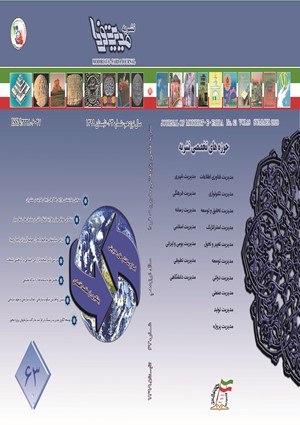Identify the factors that influence public-private participation in urban civil engineering projects and provide an appropriate model. Case Study: Tehran Municipality.
Subject Areas :
esmaeel ghafari
1
,
Karamollah daneshfard
2
,
Gholamreza memarzadeh Tehran
3
![]()
1 -
2 -
3 -
Keywords: public-private partnership Exploratory Factor Analysis Urban Civil Infrastructure Projects,
Abstract :
Public-private partnership (PPP) is a new way to expand public services through the private sector. PPP have become common in providing high-quality infrastructure in many countries worldwide. One of the main reasons for PPP agreements is to improve efficiency and quality in the delivery of public services, as well as to boost investments for expensive projects, which should be given more attention in Iran. This research is aimed at identifying effective factors in the success of public-private partnership Urban Civil Infrastructure Projects in Tehran Municipality and providing its model. The research method in this research is Applied, Field, Exploratory, Descriptive and causal. The statistical population of this study is all internal and external stakeholders are influential on private sector investment in Tehran Urban Civil Infrastructure Projects plans. In this study, using a questionnaire based on experts' opinions and research literature, data were collected and analyzed through Exploratory Factor Analysis. Factors affecting public-private participation in Tehran urban civil engineering projects and related model were extracted. The results of factor analysis show that the following seven factors affect the success of public-private partnership in our model, which are 1- Transparent processes and procedures 2- Knowledge, skills and support of managers 3- Legal support and incentives 4- Health of the administrative system 5- Political stability and support 6- Capacity Building 7-policy making.
Martijn Van Den Hurk and Koen Verhoest. (2016). the challenge of using standard contracts in public-private partnerships. Public Management Review, 278-299.
Robert Osei-Kyei, Albert P.C. Chan. (2015). Review of studies on the Critical Success Factors for Public–Private Partnership (PPP) projects. Project management, 1335-1346.
Shiying Shi, H.Y. C. (2016). Examining the Interrelationship among Critical Success Factors of Public Private Partnership Infrastructure Projects. MDPI, 1-20.
W B. (2017). PUBLIC-PRIVATE PARTNERSHIPS Reference Guide. Washington, DC: World Bank.
zayyanu, M. Johar, F.. (2017). Built Environment, Technology and Engineering, 90-98.
(1395)، آمارنامه سال 1395 شهرداری تهران. تهران: سازمان فناوری اطلاعات و ارتباطات شهرداری تهران.
برنامه پنجساله دوم شهرداری تهران. (1393). تهران: معاونت برنامهریزی، توسعه شهری و امور شورا شهرداری تهران.
حسام عزتآبادی پور و حبیب اله طاهرپورکلانتري. (1393). ارزیابی و اولویتبندی متغیرهای مؤثر بر موفقیت. فرایند مدیریت و توسعه، 21-43.
داناییفرد حسن، د. ج. (1396). شناسايي و اولویتبندی موانع توسعه مشارکت بخش خصوصي – دولتي. چشمانداز مدیریت بازرگانی، 33-49.
سازمان برنامهوبودجه. (1397)، پروژههای توسعه مشارکت بخش عمومی با بخش خصوصی و تعاونی در سال 93. تهران: سازمان برنامهوبودجه کشور، مرکز اسناد.
نوروزي محمد، ع. م. (1394). عوامل حياتي موفقيت در پیادهسازی پروژههای مشارکت عمومي- خصوصي در حوزه انرژي جمهوري اسلامي ايران (موردمطالعه: صنعت برق) بهبود مدیریت، 83-108.


